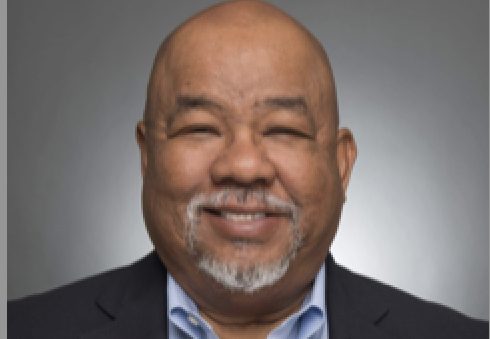
Sociologist Howard Winant’s essay, “Racial Dualism at Century’s End,” offers a cogent analysis of the issue of race, especially as related to Black Americans in the U.S. Race is a perpetually timeless issue despite so many people continuing to deny or minimize its importance. Usually, this is done in order to maintain white privilege and the status quo.
Race matters whether white people in the United States and other countries throughout the world wish admit it, or not. Throughout U.S. history, racial conflicts have continually shaped and reshaped the categories into which all human identities were classified. Arguably, racial struggles are at the heart of U.S. society and have created and perpetuated the politics and culture of America. Winant argues that although race has always mattered, it is as problematic a concept today as ever. He calls the current period one of “universal racial dualism.”
Once, U.S. society was a nearly monolithic racial hierarchy in which everyone knew “his” place, but under racial dualism, everyone’s racial identity is problematic. Monolithic white supremacy is supposedly over, yet in more concealed ways, white power and privilege live on, undiminished. The overt politics of racial subordination has been weakened, yet it is still very possible to “play the racial card” in politics, economics, and virtually all other areas of human interaction in America. Blacks and other racially defined minorities are purportedly no longer subjected to legal segregation, but obviously, have not been relieved of the burdens of discrimination, even by laws supposedly intended to do so.
The old recipes for racial inequality which involved creation of a “color blind,” society have been transformed into coded formulas for maintaining racial inequality. The old programs for eliminating white racial privilege like affirmative action are now accused of creating non-white racial privilege, i.e., “reverse discrimination.” The welfare state, designed, and once seen as the major instrument for overcoming poverty and injustice, is now accused of fomenting these very ills.
Racial dualism means today that there are two ways of looking at race, where previously there was just one. In the past, practically everyone agreed racial subordination existed; the debate was whether it was justified. However, agreement about the continuing existence of racial subordination has vanished. The very idea that race matters is something which today must be argued, something which is not self-evident. This, in itself, attests to the transformation which racial dualisms has undergone from the time of W.E. B. DuBois’ “The Souls of Black Folk” into the 21st century.
Of course, the world DuBois analyzed is still very much with us. We live in a racialized society, a society in which racial meaning is ingrained in all experiences. And racial identity not only shapes life chances, but social life, tastes and place of residence as well. The meaning of race, the interpretation of everyday life and of the larger culture, polity, and economy has been so finely tuned for so long and has become so ingrained, that it is now second nature, for the oppressor, and unfortunately, the oppressed, alike, “common sense” that seldom requires acknowledgement or clarification.
Paradoxically, race, as a “reality” is an illusion. It is patently inadequate, if not wholly false, to understand human experience, individual or collective, in racial terms. Indeed, it is difficult to even specify the meaning of race beyond the most superficial notions. Not only ordinary individuals, but even anthropologists, sociologists and geneticists cannot present a convincing rationale for distinguishing among human groups chiefly by physical characteristics.
In the United States, “hybridity” is universal. Most Blacks have “white blood” and tens of millions of whites have “Black blood.” Latinos, Native Americans, Asian Americans and Blacks, as well as whites, have centuries-long histories of contact with another—colonial rule, enslavement and migration were horrendous for Blacks and other so-called minorities, but were are effective “race-mixers.”
Race matters then in a second sense: It matters not only as a means of rendering the social world intelligible, but simultaneously as a way of making it mysterious. Race is not only real, but also illusory. Not only is it common sense, it is also common nonsense. Not only does it establish our identity, it also denies our identity. Not only does it allocate resources, power and privilege, it also provides for challenging that allocation. Race not only neutralizes, but also socializes. The built-in contradictory character of race provides the context in which racial dualism, i.e., the “color line” as DuBois designated it, has developed as the problem of both the 20th and 21st centuries.
For centuries, white supremacy went almost entirely unquestioned in the political mainstream, which established the overall contours, as well as the particular political and cultural legacies of racial insubordination (and resistance.) It eliminated or, at best, severely limited the political terrain upon which racially defined groups could mobilize within “civil,” (white) society, thus constituting Blacks, and others as “outsiders.” It denied the existence of commonalities among whites and non-whites, such as shared economic activities, shared rights as citizens and, fundamentally, shared humanity. Thus, race, at least in principle, was construed in terms of all-embracing social differences.
Not only did racialization minimize differences among people considered white, it also homogenized distinctions among those whose difference with whites was considered the only crucial component of their identities. Over time then, this “white versus others” or ‘us versus them” concept of difference created not fixed and unchanging racial identities—these are always in flux—but the potential, the social structure, indeed the necessity of universally racialized identities in the United States. The major challenge is to recognize and capitalize on the potential for changing white privilege so that Blacks, especially, gain power that is at least commensurate with their numbers in the population.







